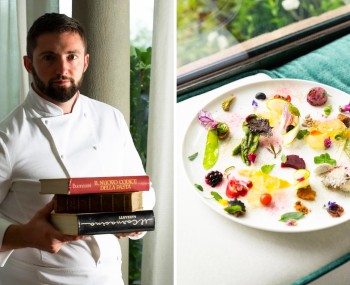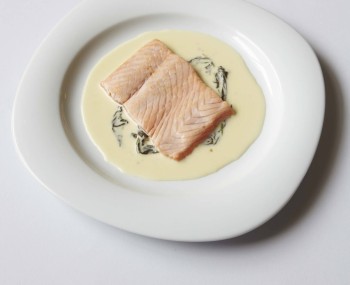A Symposium in the Jungle Revealing Tulum's Hidden Side: Arca, the former prodigy of René Redzepi's Noma, crafts memorable dishes with unpredictable flair. And shows how Mexico still has plenty to tell.
There's only a few restaurants where everything comes perfectly together – the food, the drinks, the service, the atmosphere. Arca is one of them. Its location though is a blessing and a curse at the same time – Tulum is not exactly a world-renowned culinary destination like Mexico City or Oaxaca or Baja or really, pick almost any Mexican region.
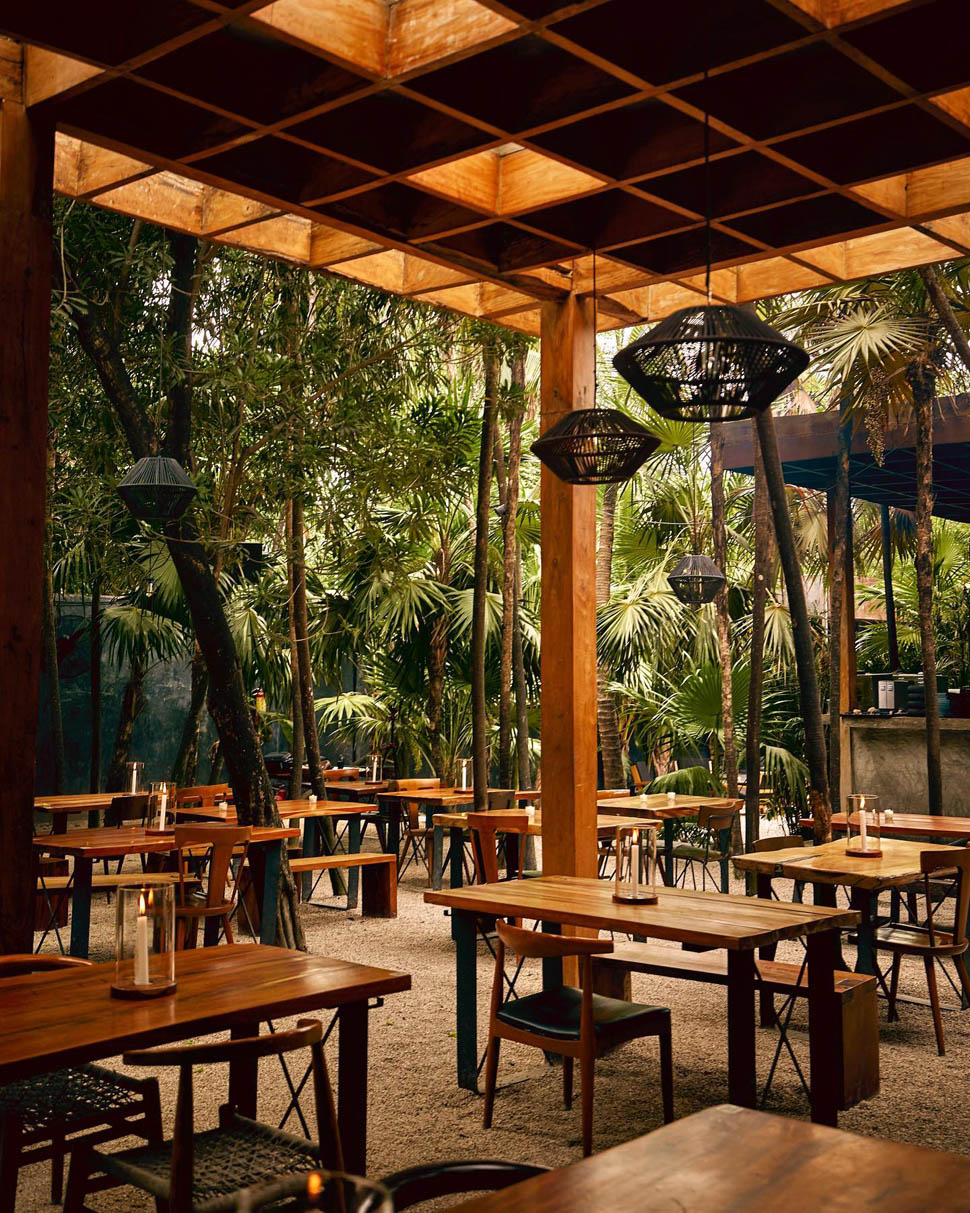
It's the beach, it's the drug-fueled raves in the jungle, it’s rich American tourists squeezed in fish net outfits trying to get their chakras rebalanced through tacky new age boho spirituality, it’s influencers with endless photoshoots on the sunbeds with their Tuluminati fedoras, it's the giant dream catchers hanging from the branches and free flow of Xanax and Viagra in the – literally – hundreds of pharmacies along the strip. What I am saying, for people who travel for food, Tulum is not high on their priority list.
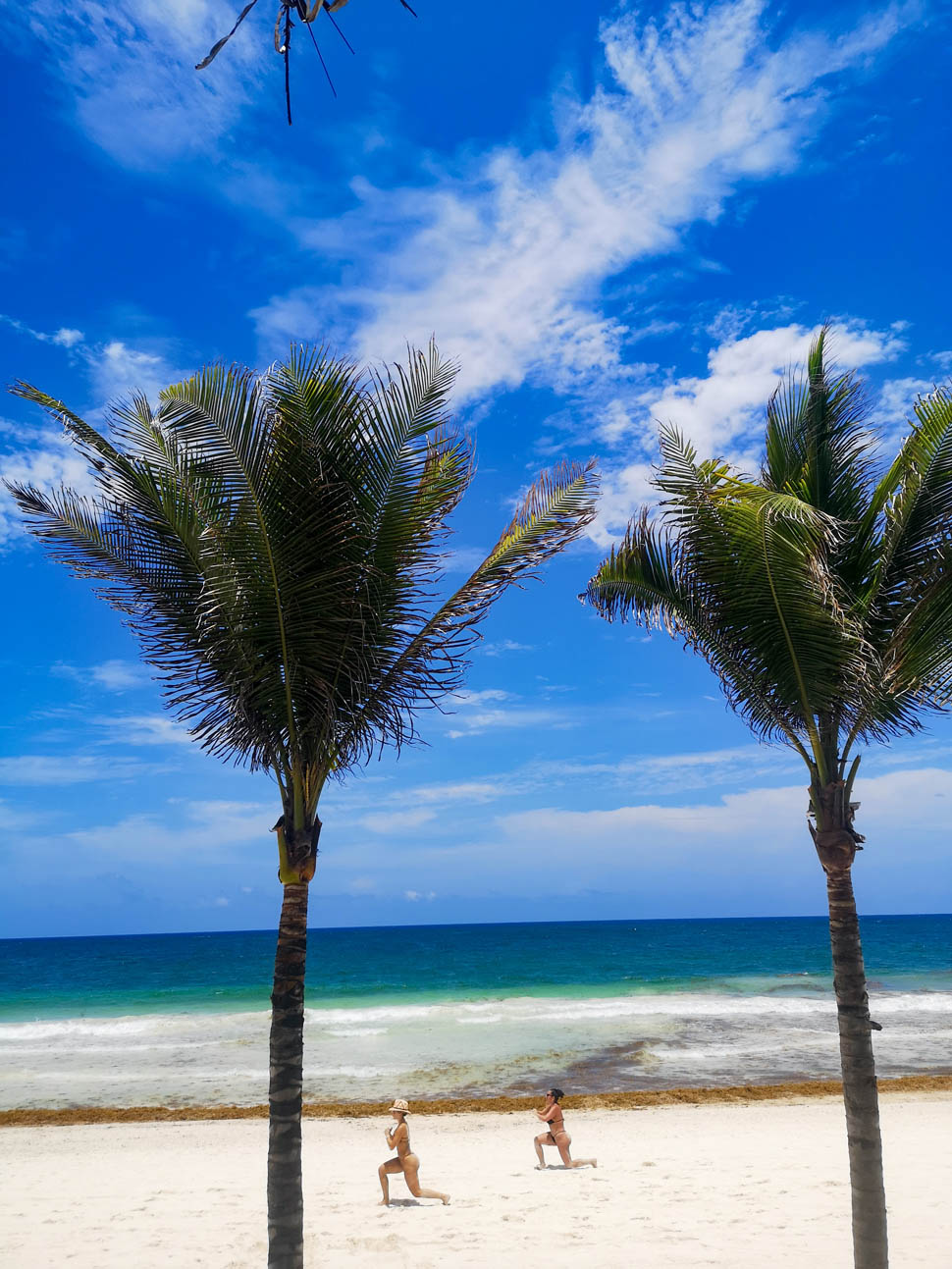
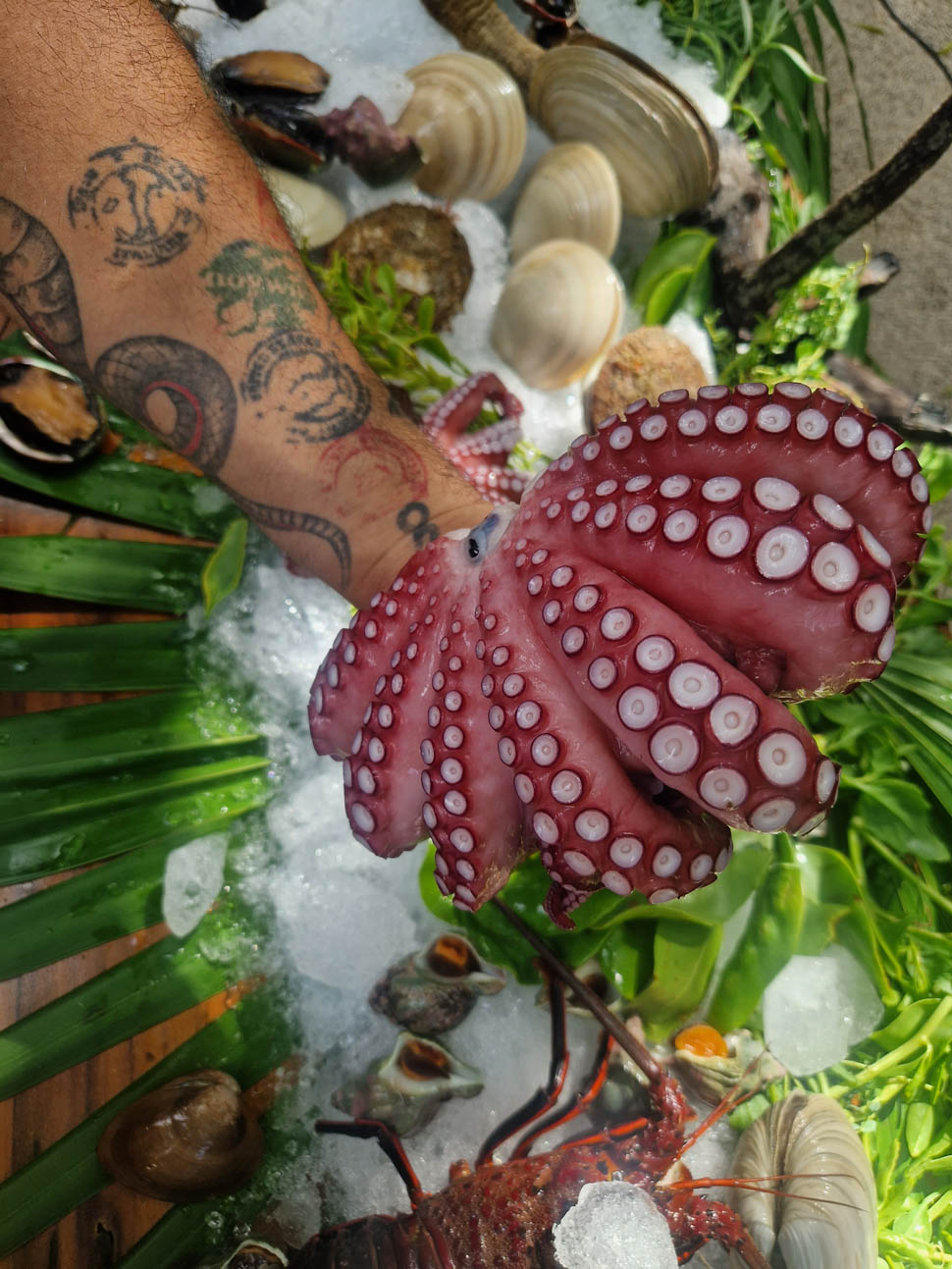
But Tulum is also taking a boat trip to the wild serene UNESCO protected Sian Ka’an lagoon, where you pass giant nests of fish eagles, you zig-zag through the mangroves, spotting alligators along the way. You take in the views of old Mayan ruins perched high on the cliff over the turquoise seas and you drive off to Mayan communities where they dig out the succulent cochinita pibil from the pits, pork cooked underground with all the juices and the spices.
The late afternoon sun paints everything in yellow and warm, the colors of Yucatan, the colors of old colonial Yucatecan towns. And the food matches the character of the region and the people – rich, deep, with layers and layers unravelling with each bite.
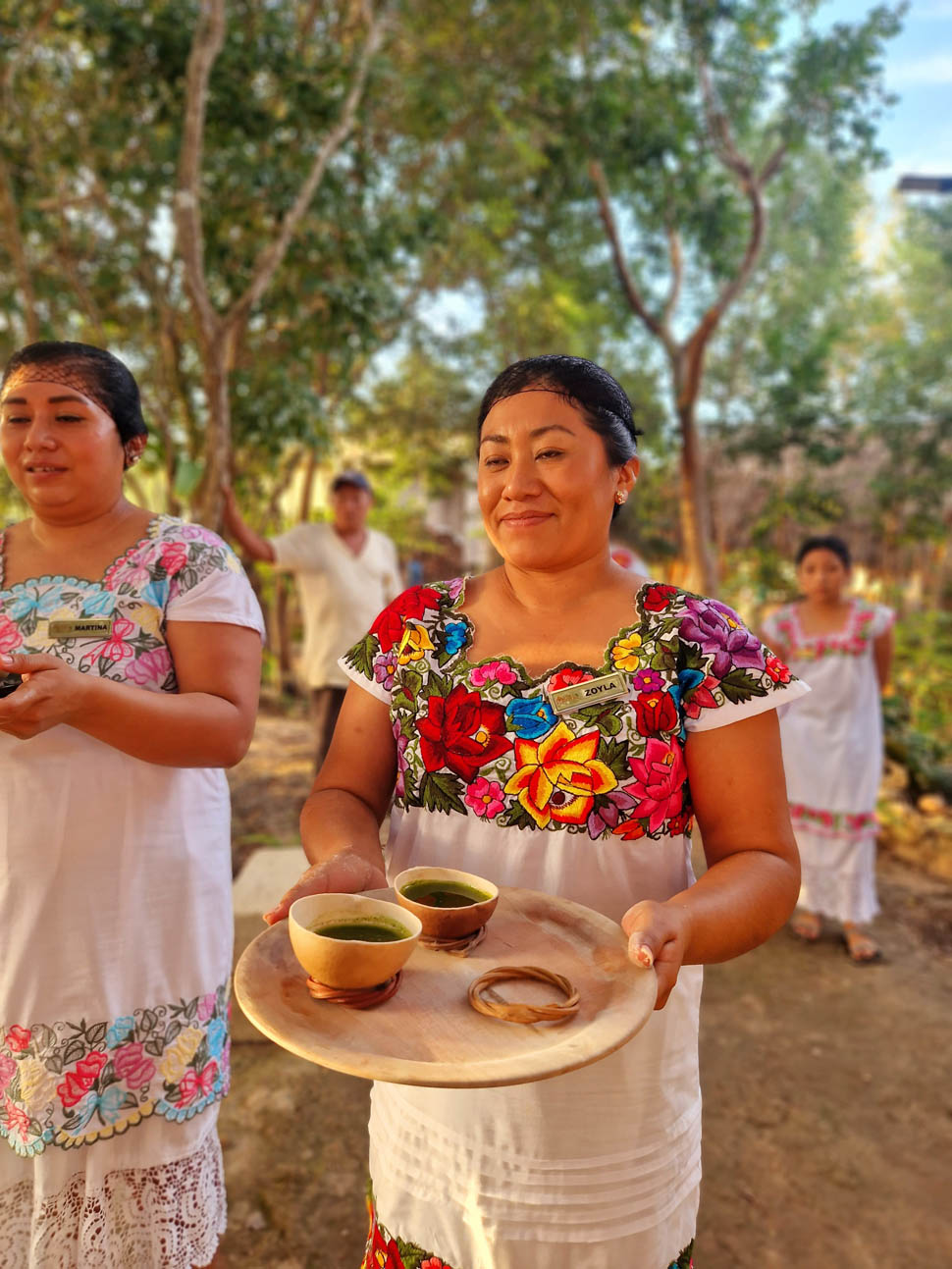
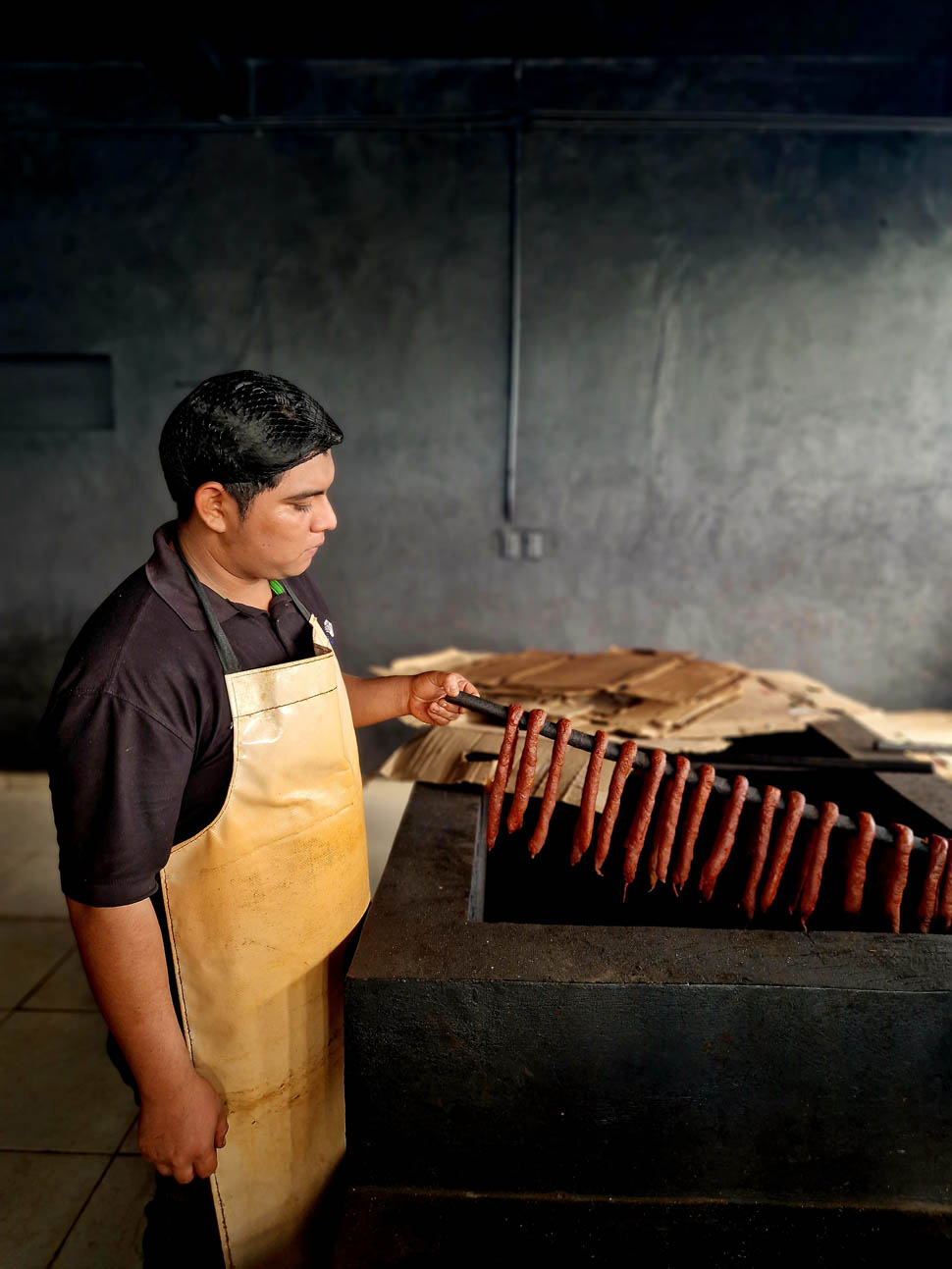
Chicken rubbed with a fragrant Yucatan rub of oregano, garlic, cinnamon, allspice, red onion, pepper and annatto, doused with juices of bitter orange and baked in the pit for 4 hours, the Sikil p’ak, local dip of Mayan origins made of ground charred pumpkin seeds, fire roasted tomatoes, cilantro and habanero chili, the 1001 versions of tacos, topped so heavily with all the add-ons that the juices ooze through and drip all over our unskilled gringo hands.
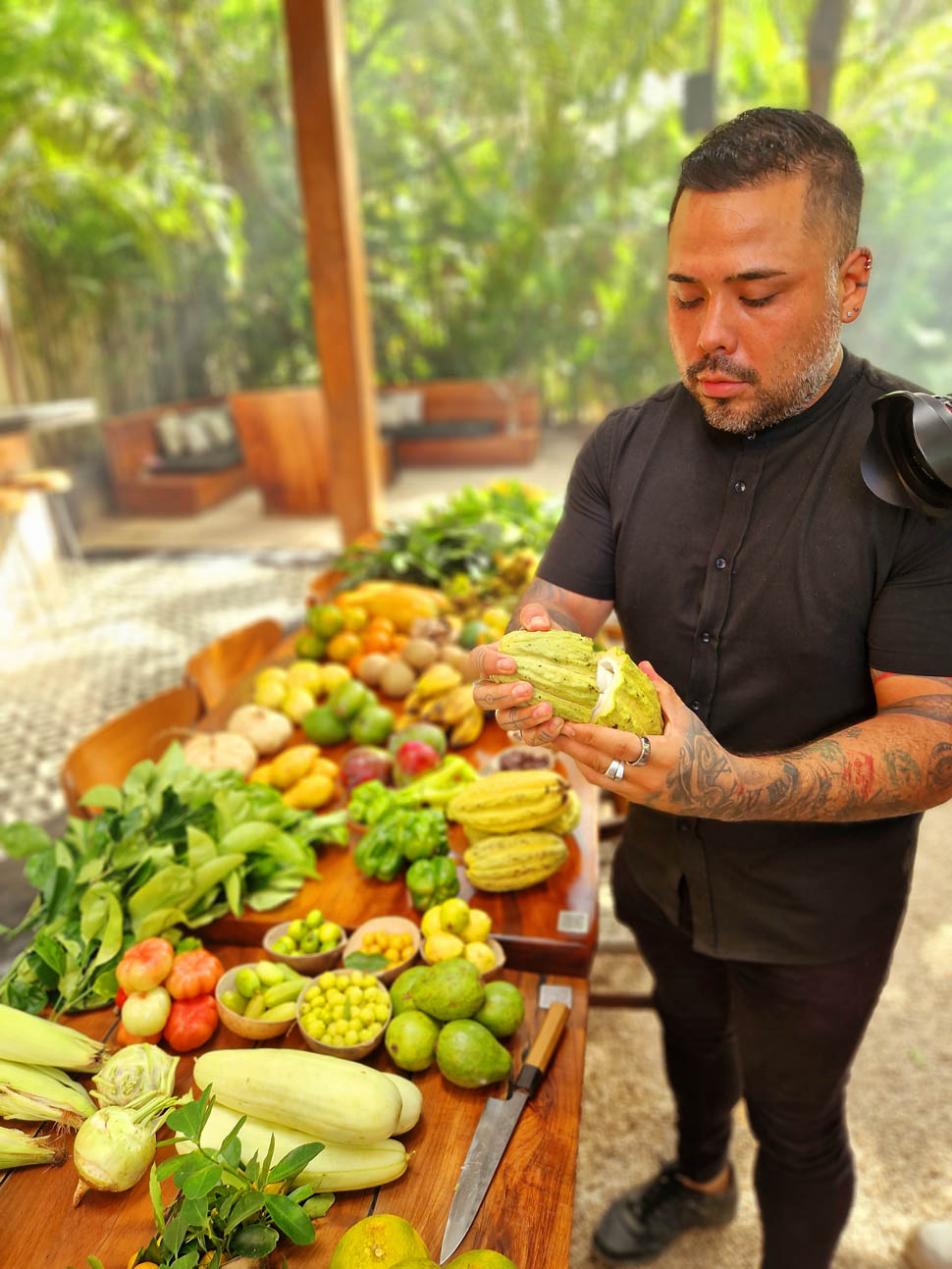
The restaurant
Arca, built on the Noma 2017 pop-up legacy by chef/co-owner Jose Luis Hinostroza (34), makes use of all that, lures you in with the sultry vibes, the rustic open fire kitchen, the dining room under the palm trees, one of the best restaurant playlists (don’t bother Spotifying it, Hinostroza is too protective of his music taste to share it to the masses), mezcal-forward North America’s 50 Best bar and some of the ballsiest dishes out there.
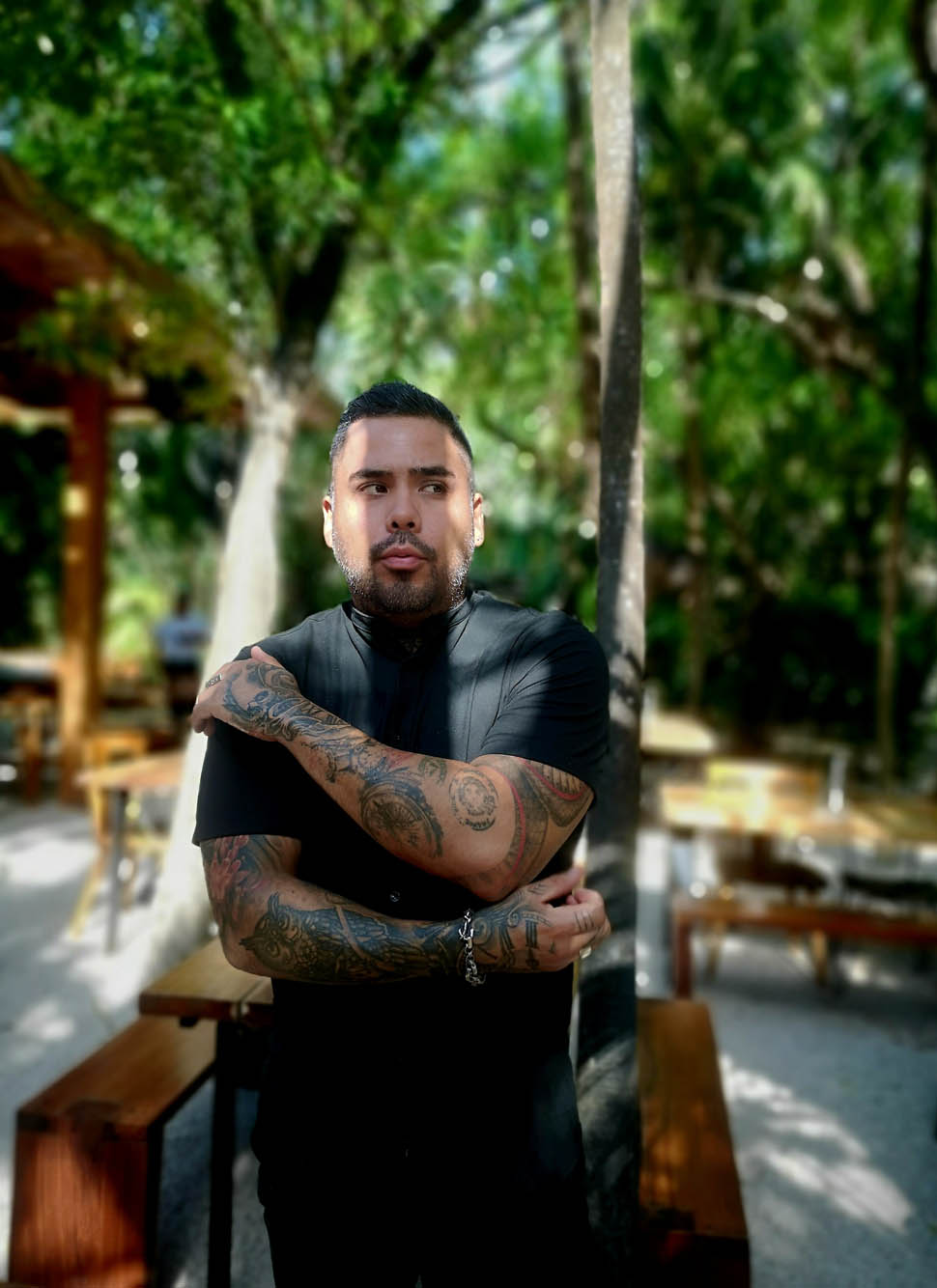
There’s no playing it safe, it’s a rollercoaster of pungent, sour, salty, iodiny and fruity. It’s an art form of pushing the boundaries with the strong, bold flavors of Yucatan bringing it to the very edge, cutting it short just before crossing it. There’s a huge amount of research that goes into creating Arca menu with a lot of work done back during that Noma Tulum pop-up days when the team, which included another Mexican chef prodigy Santiago Lastra (33), went deep into exploration of Mayan and Yucatecan use of produce.

Like for any of their international pop-ups, Rene Redzepi’s team arrived months ahead of the opening, digging deep into the local cuisine, ingredients, history, techniques, and culture - and coming up with some revelatory stuff. There’s a reason why that particular Noma pop-up is considered the most impactful to date.
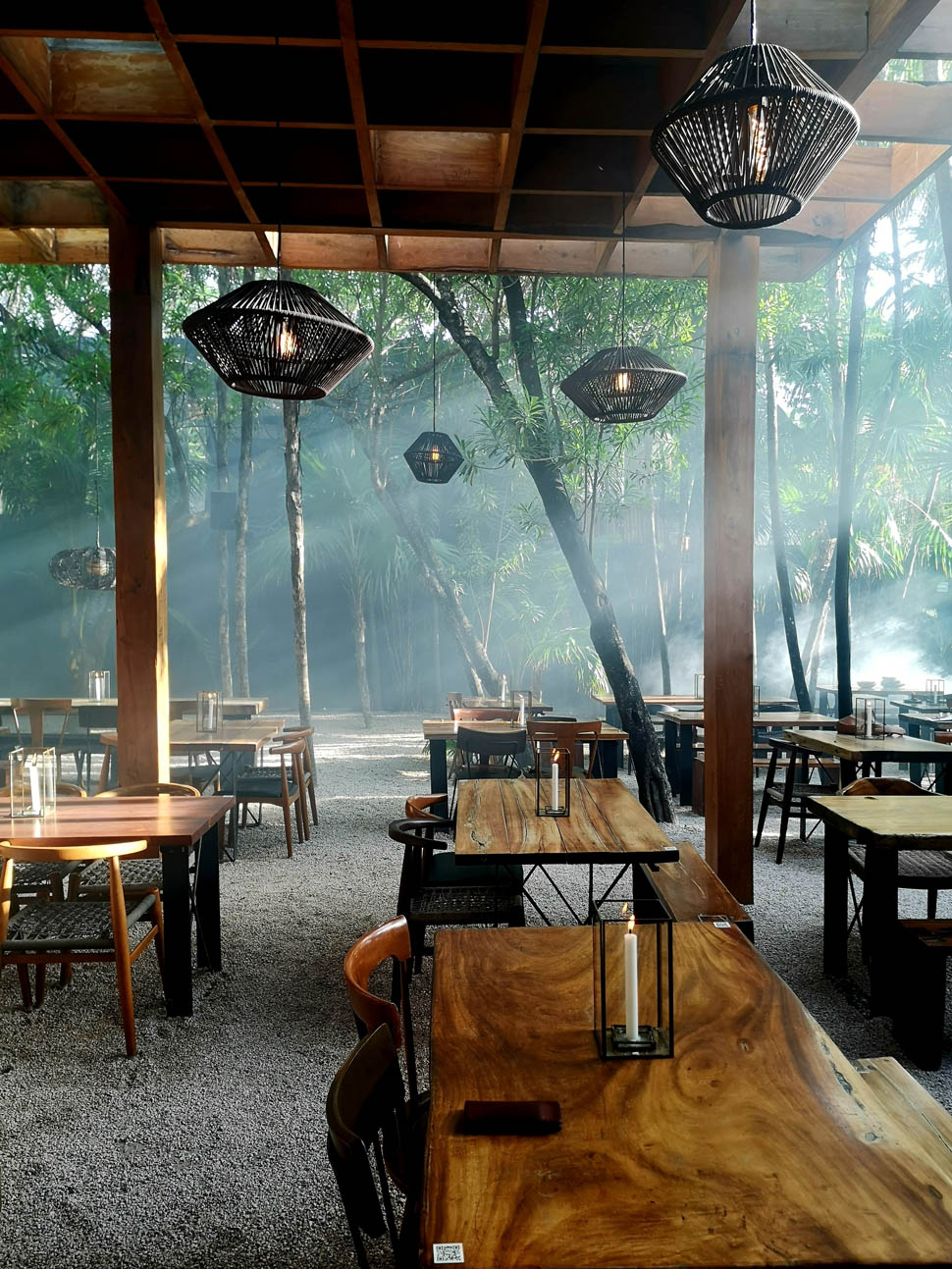
And it’s not just that people started paying a bit more attention to Tulum (I mean, if Redzepi likes is, there must be something there?), it also forced Mexican chefs within the team to go back to the place they were trying so hard to escape with their fancy international stints, take a second look at their home country and discover something beautiful and truly unique within. It made Lastra open KOL in London, a restaurant using Mexican techniques with British ingredients and it made Hinostroza, an Alinea; Celler de Can Roca, Maemo and Noma alumni, return to Mexico to set up his own place just a stone-throw away from Noma’s makeshift restaurant on the jungle side of the Tulum strip.
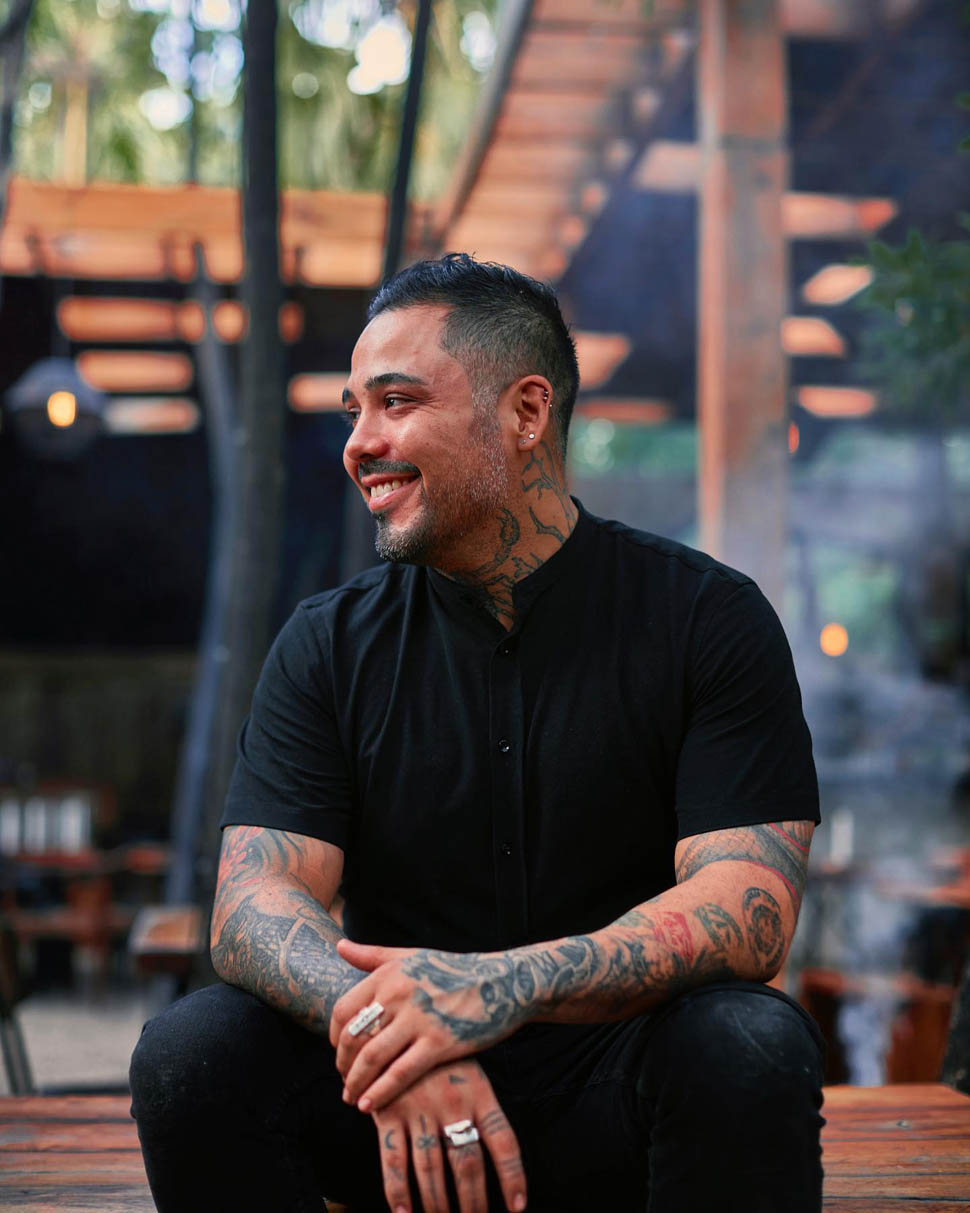
Hinostroza, a San Diego/Tijuana native so heavily tattooed that will make you think he spent more time in prison then in the kitchen (one publication dubbed him “Tulum’s bad boy chef”), will spare you though all the self-indulgent explanations and childhood memories references – the only exception is his take on Caesar’s salad, invented in Tijuana and popularized around the world. Instead he will try first and foremost to make you see that other side of Tulum that goes beyond the tacky and the faux spiritual.
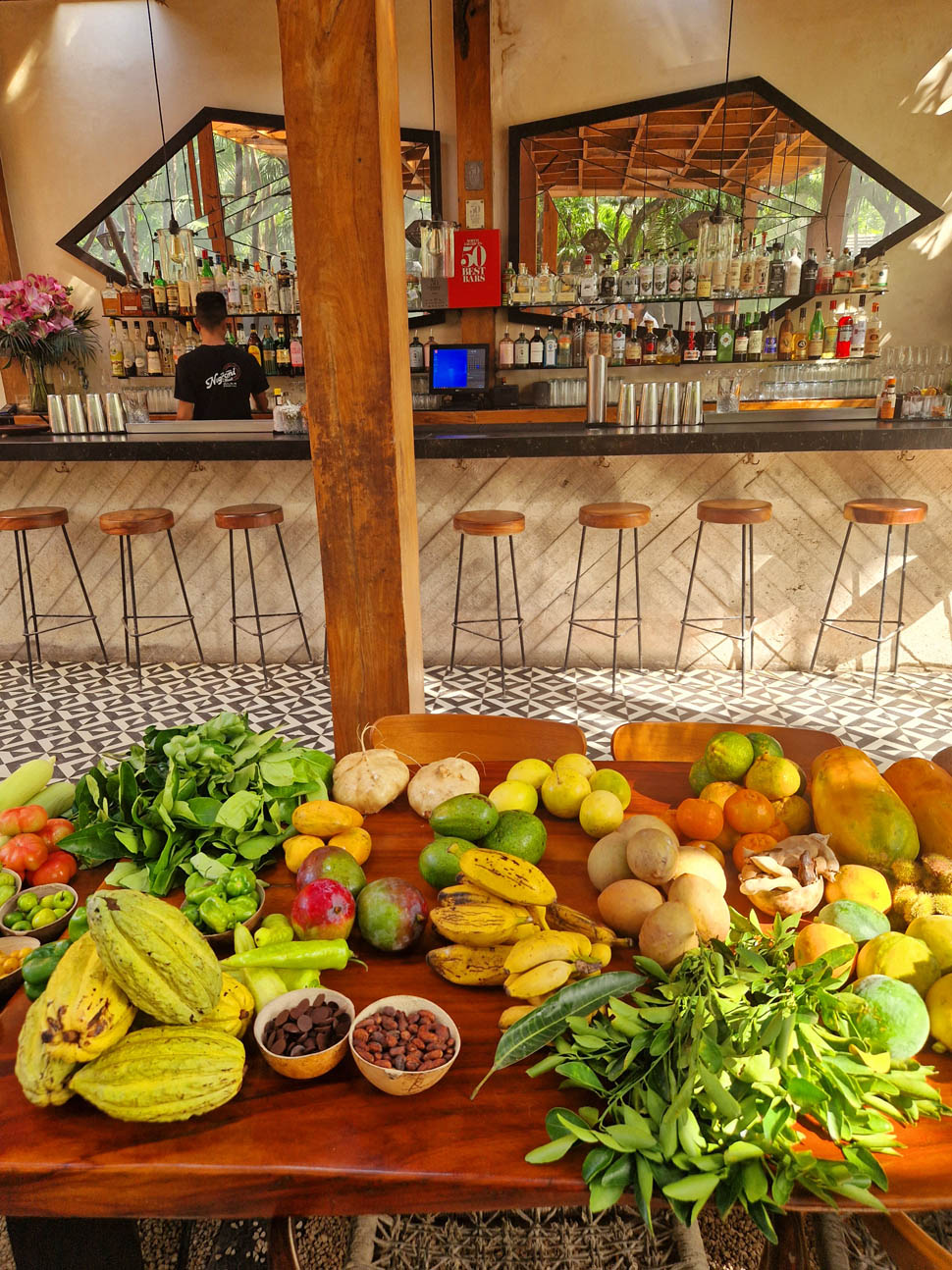
He will take you to the colorful market of Valladolid, he will make you taste the fresh crunchy jicama, the sweet Yucatan pineapple, the juicy, custard-like soursop, the nutty, creamy mamey and the fragrant Hoja Santa leaves. “Here everything is pushed – the acidity, the smokiness, the fruitiness – that’s why the dishes at Arca are like that as well,” he explains as he cuts open a tangy passion fruit, dripping with sticky tropical juices. There’s a whole range of citrus, some sweet, some tart, some with a peel so aromatic just rubbing it makes you smell like an expensive soap.
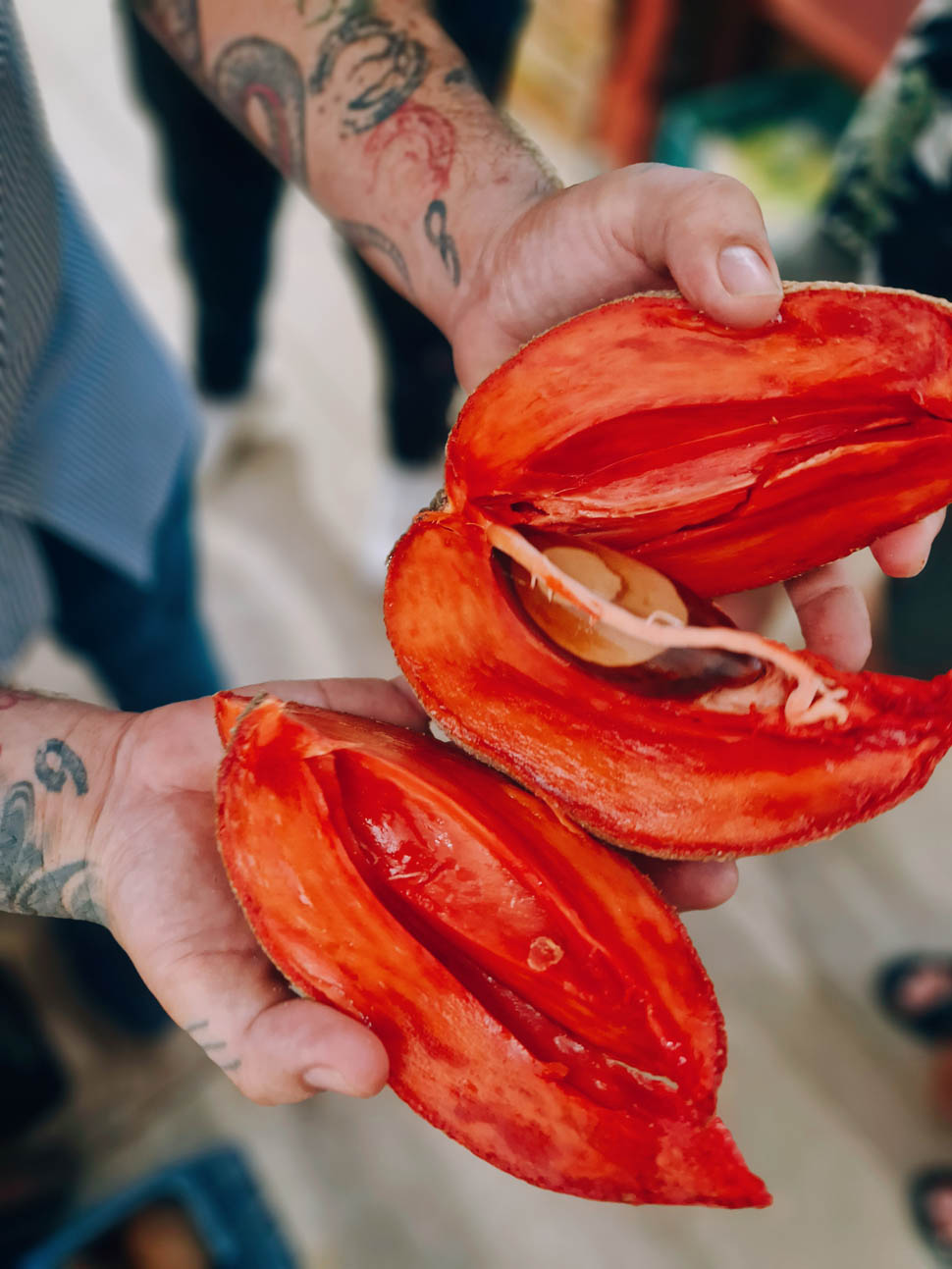
There’s cases of colorful chilies, ranging from mild to get-the-fire-extinguisher hot, mangos of all shapes and sizes, corn cobs and squash and beans – the trifecta of Milpa, traditional intercropping system of regional vegetables that Mayan farmers and other Native Americans cultivate to this day. We drive a while out of Valladolid on the wide Quintana Roo roads, shared by tourists in rental cars, farmers with caged chicken and armored military vehicles surveilling the potential cartel movement. But no worries, Hinostroza assures us, cartels don’t touch the tourists – they are their livelihood. So reassuring indeed.
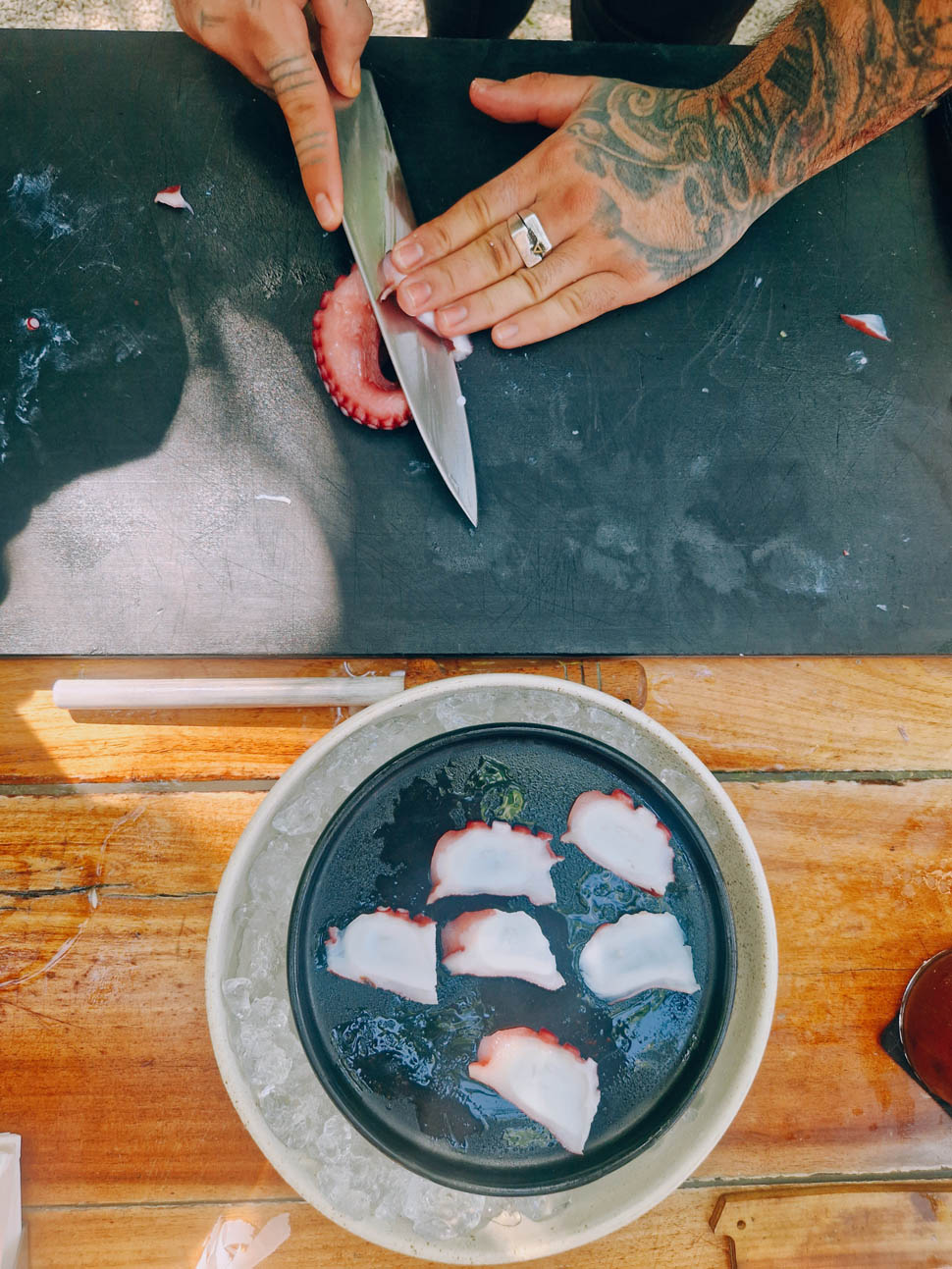
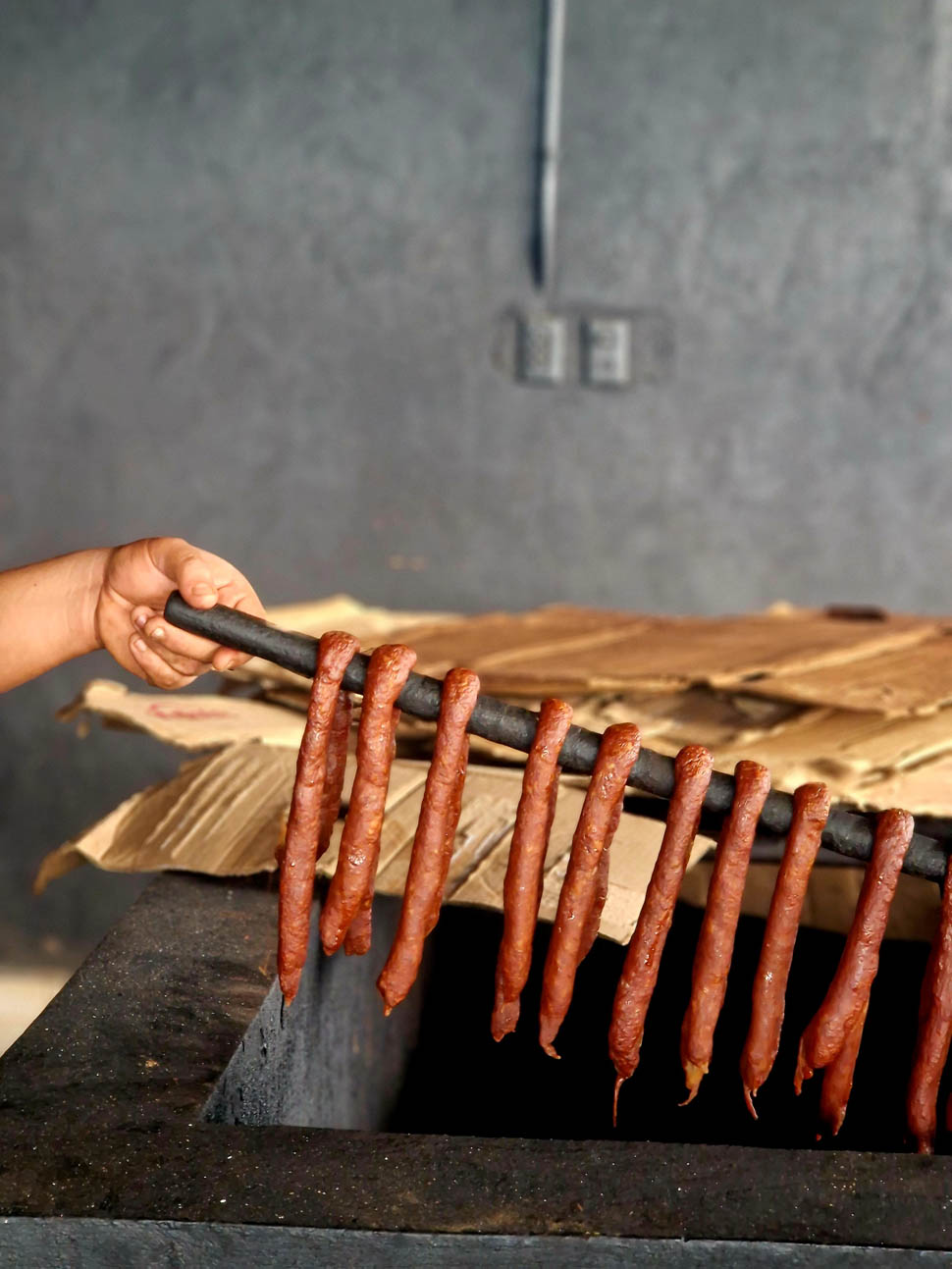
We taste the smoky longaniza sausages in Temozon, the ones they use at Arca to make a lentil mole they serve with the fire roasted Mayan octopus al pastor. Then we move to the small Mayan community of Xabatun village where we make our own Sikil P’ak dip trying to bring it as close to the one Hinostroza blends for his immediately recognizable pumpkin dish, adorned with pointy squash kernels shaping it into a beautiful blossom on a plate.
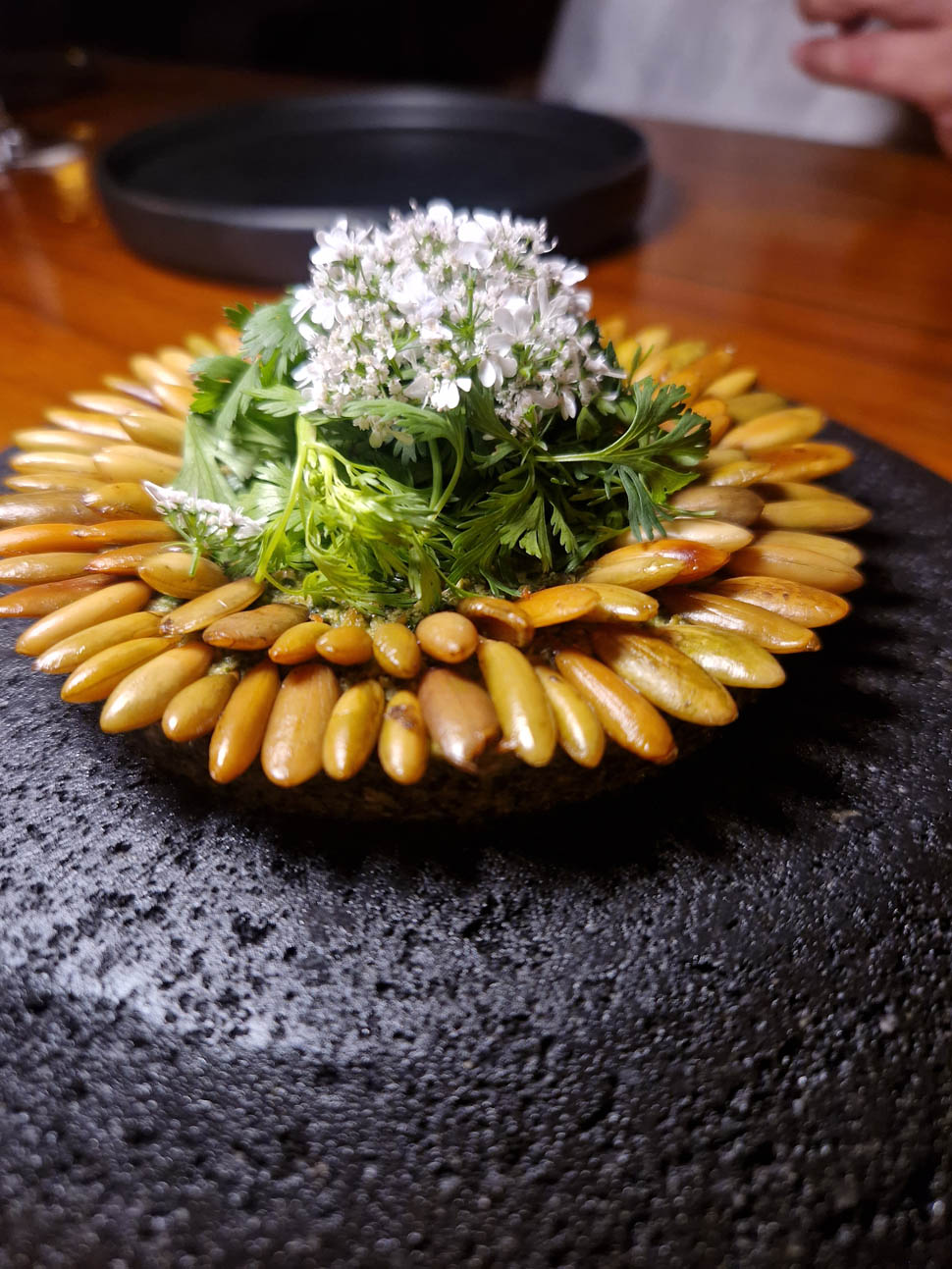
The cuisine
It’s getting dark when we get back to Arca, where a team of attractive servers, all clad in sexy low-cut/high-slit black outfits, welcomes us and leads us to the wooden table lit just by candlelight and moonlight. The one who manages them all is Paula Rules, a charismatic, highly efficient Asturias native who does not miss a beat running the place and the service – and on occasion the untamed chef himself.
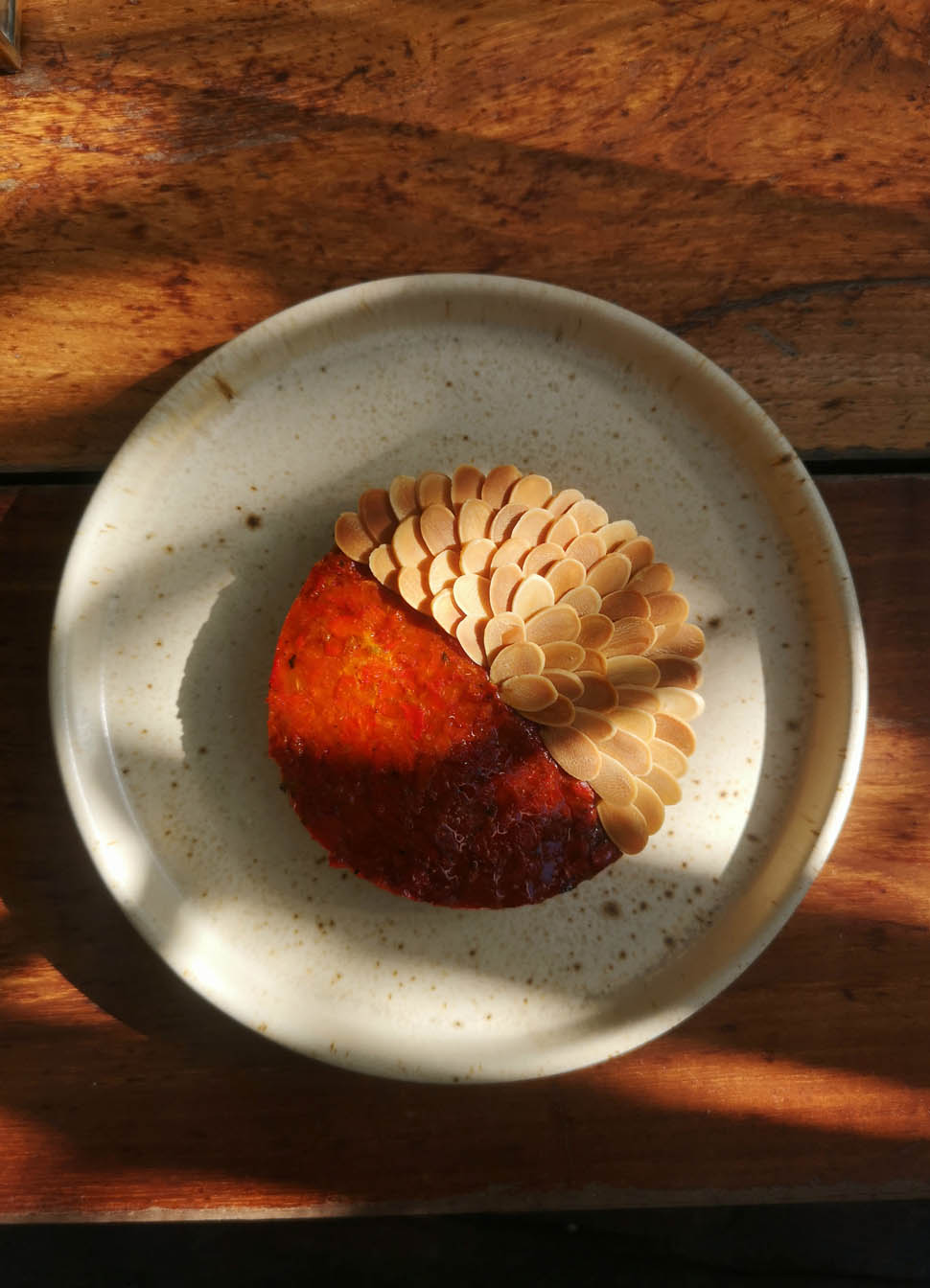
The bar program at Arca, overseen by Carlos Mora and Peter Sanchez, runs as a separate entity in a way, gunning for those 50 Best bars rankings with concoctions made of Mexican spirits and local herbs. We start with “The lost Martini” mixed with the Lost Explorer espadin, Sake Nami, St. Germain, prickly pear distillate and salicornia – and don’t really stop, alternating mescal shots with shots of fermented pineapple distillate of Hinostroza’s own label and hazy skin contact wines because – Noma legacy.
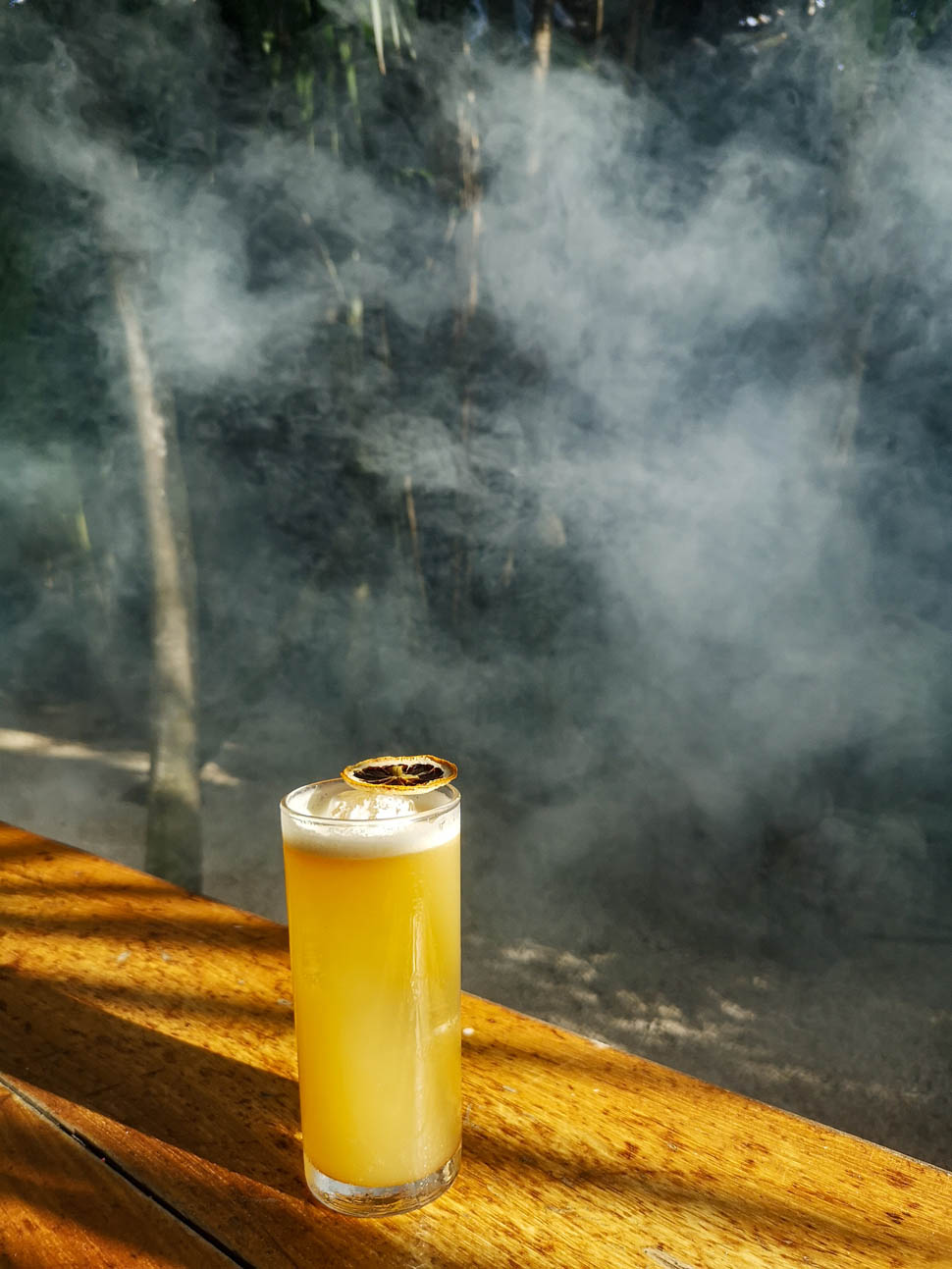
The sultriness of the place matches the dishes that the kitchen team sends out – dishes that pay homage to the jungle, the rough chilly seas of Baja California where the best seafood in Mexico comes from, the fruits and crops of local communities, the creatures of land and ocean. Make no mistake though – this is not minimalistic cooking with ingredients stripped to the bare core – Hinostroza’s strong point are the sauces, tangy, thick, pungent, obscenely rich sauces high in acidity that are so complex that the layers keep revealing themselves with each bite, sip, suck and lick. Case in point: His signature prawns from Campeche, drowned in a silky, slightly spicy salsa made of prawn bisque, fermented chile manzano, chile morita and plantain vinegar.
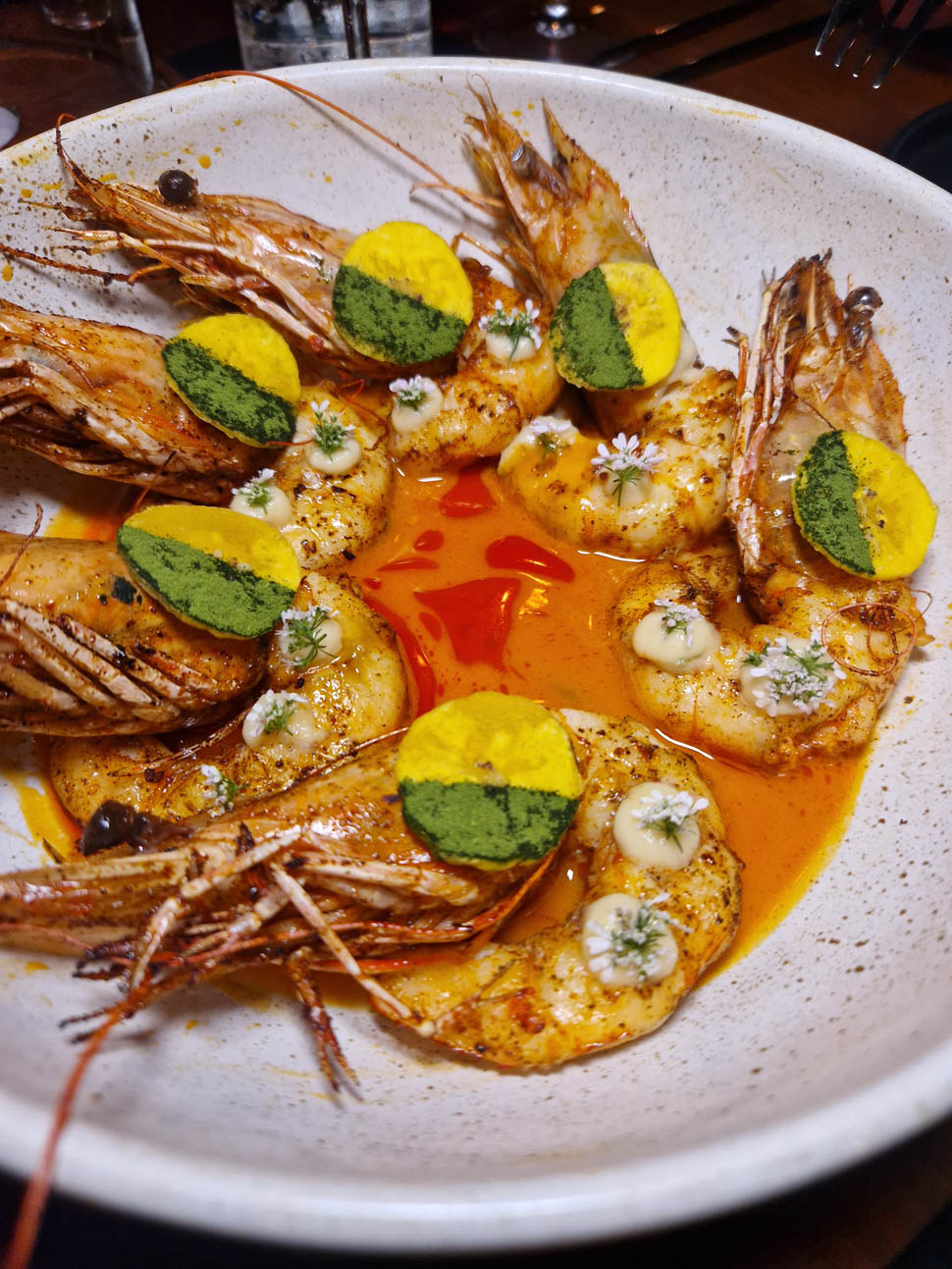
Caribbean lobster comes with a deep flavored coconut bisque, whereas raw chunks of freshly brought in queen clam and geo duck are served in a cold “ojo verde”, fermented tomatillo and sea lettuce seaweed aguachile with lemongrass oil that has a nice kick to it. Then there’s another crowd favorite, soft shell crab in amaranth and mescal tempura (think fried moeche crabs from Venetian lagoon, just more gigantic) served with Hoja Santa emulsion and fermented habanero and xoconostle salsa that cuts right through the fattiness of the fried crustacean.
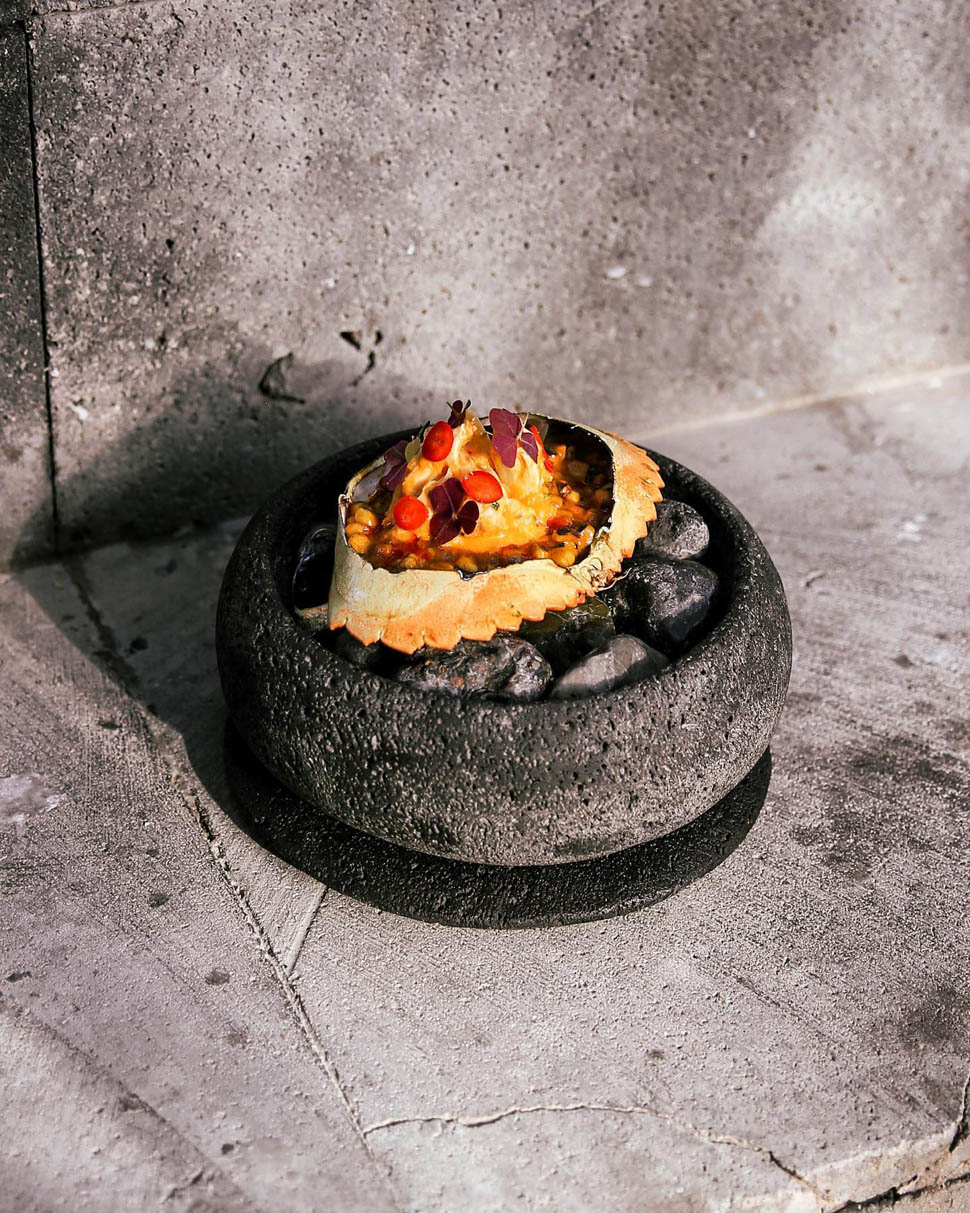
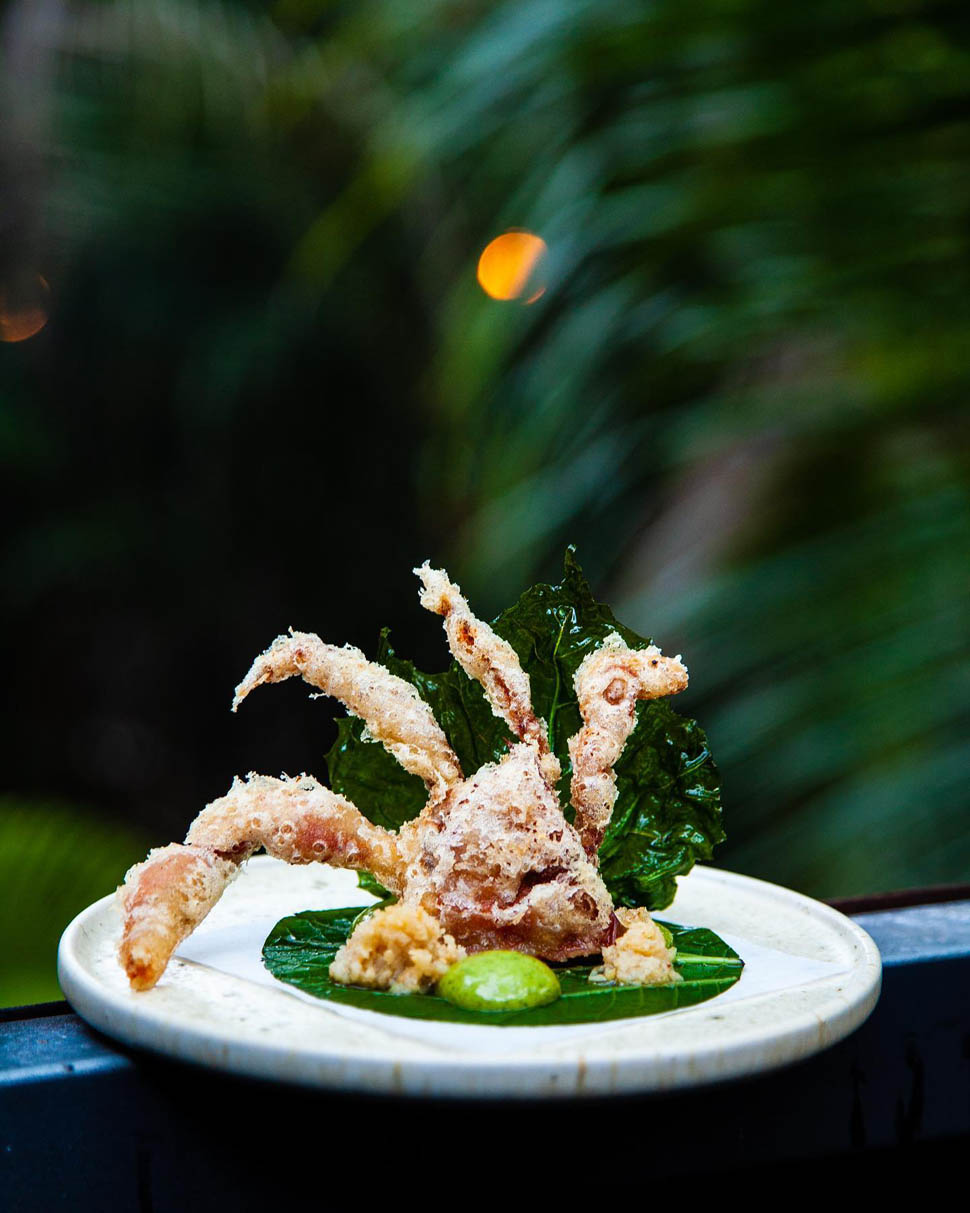
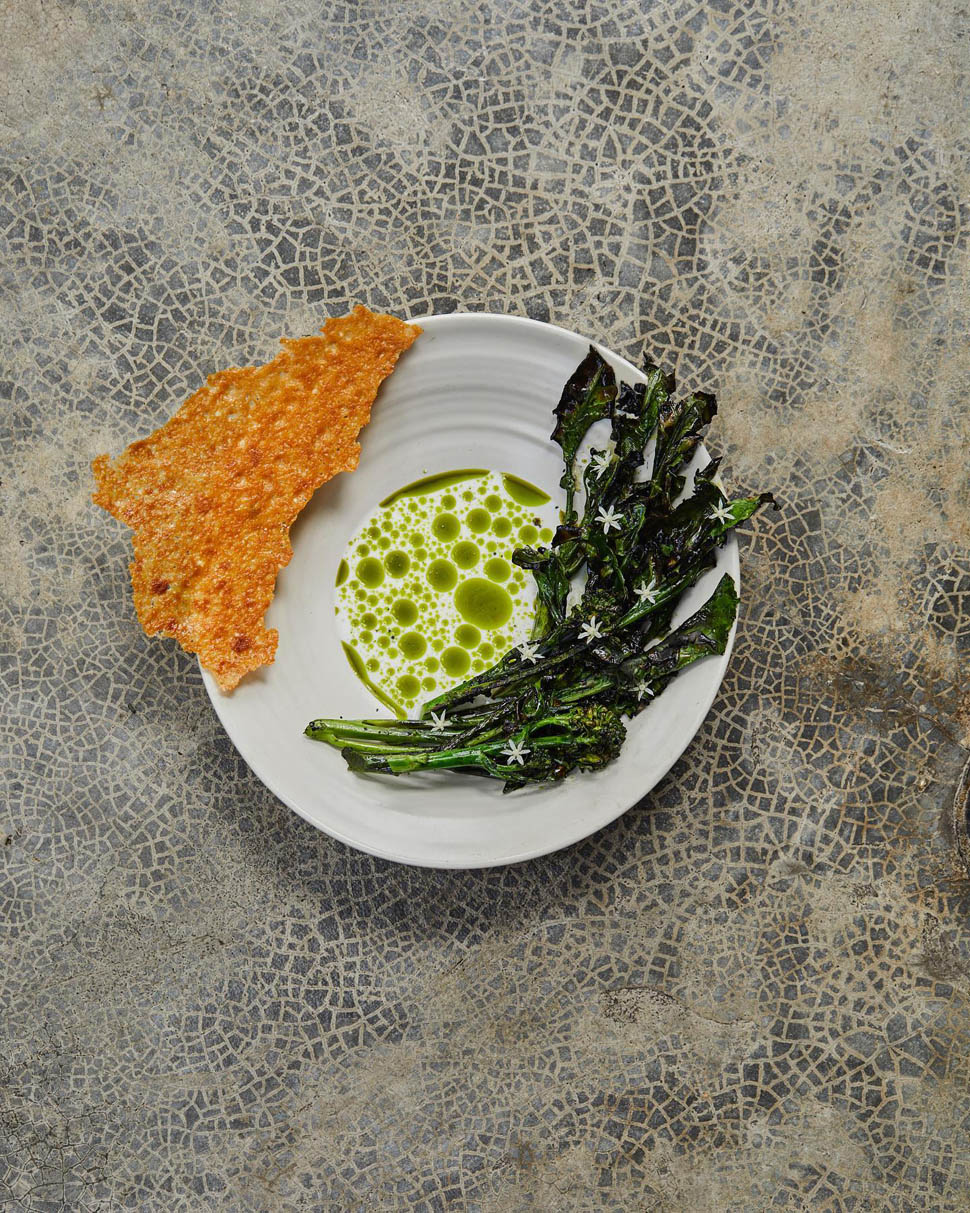
And since this is Mexico, of course you won’t leave the table before the almost mandatory DYO taco dish where you can showcase your tortilla topping skills (or lack of them) – in this case the main protein was the suckling pig head carnitas, served with roasted bone marrow smoked in cinnamon leaves with soursop vinegar and tamarind and pasilla chili glaze. Needless to say, there was quite a lot of dripping involved, but given we were into our 7th round of mescal shots, we probably didn’t care much at that point.
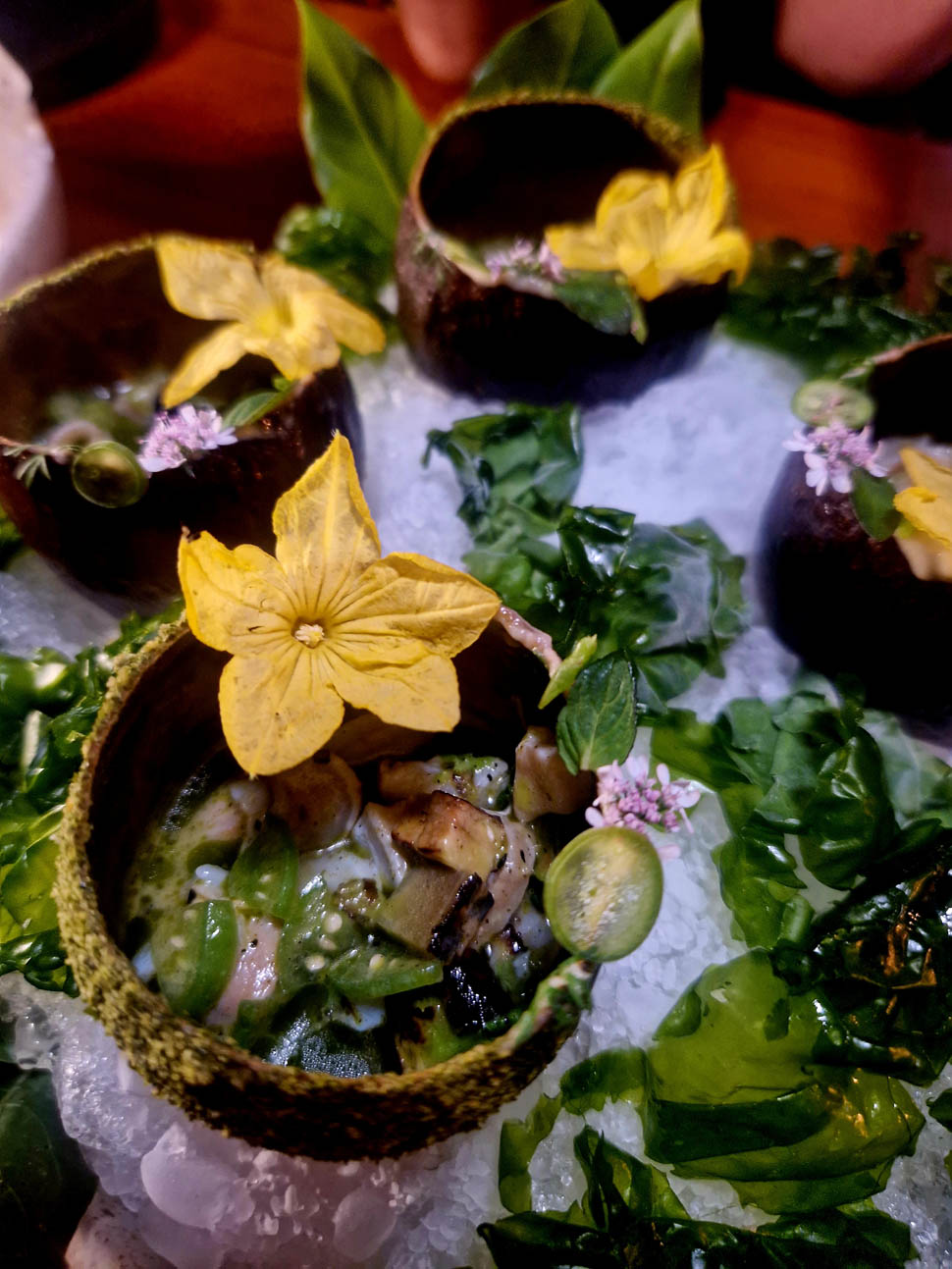
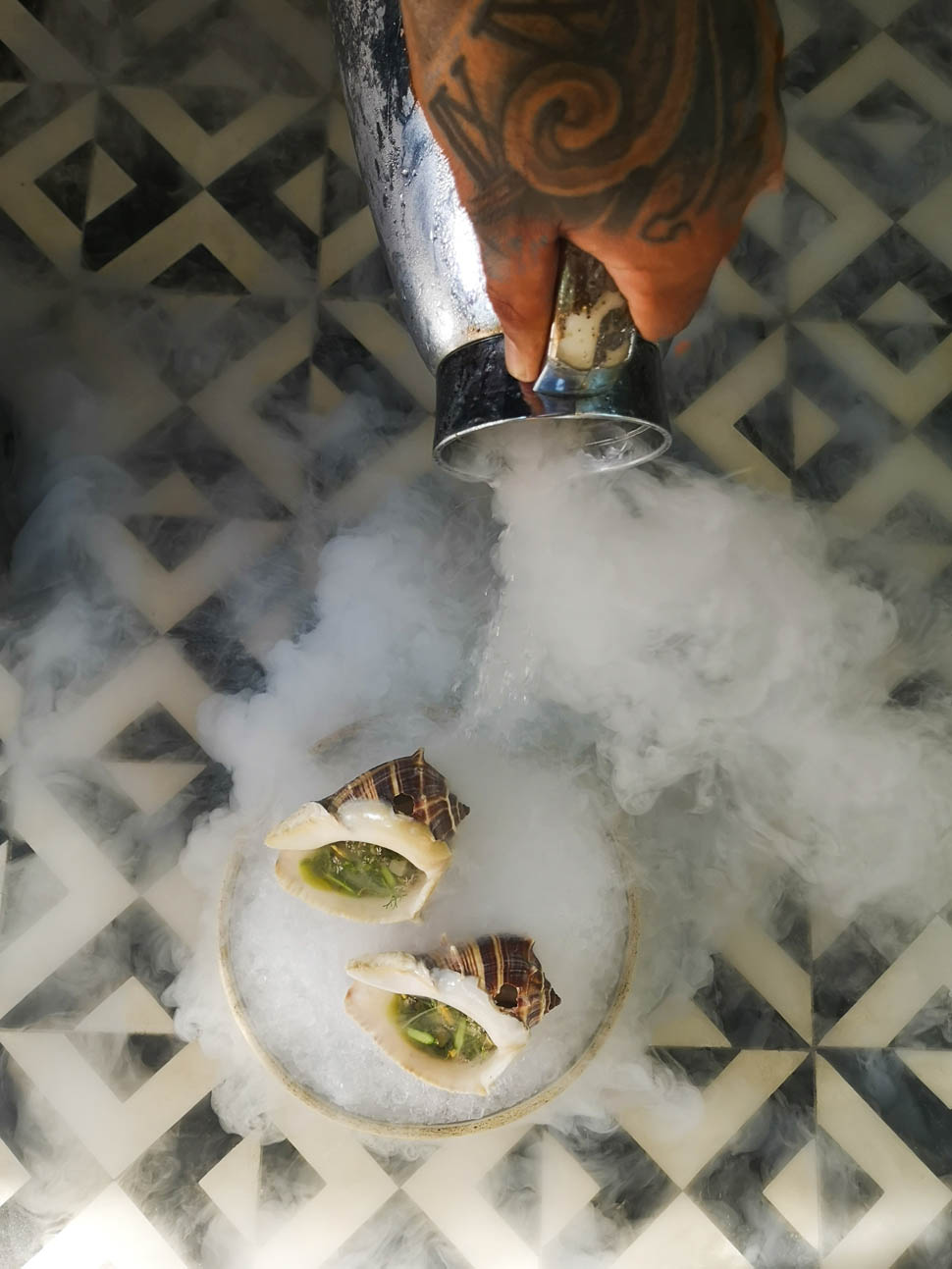
“Always yes, always more, never enough,” spells Hinostroza’s tattoo on the back of his neck. A rule he follows to the T. It makes for some outstanding, memorable dishes. It also makes for an unpredictable personality always walking a thin line. But that’s how prodigies usually are.

Contacts
Arca
Address: km 7.6, Carr. Tulum-Boca Paila, Tulum Beach, 77760 Tulum, Q.R., Mexico
Phone: +52 984 177 2231


